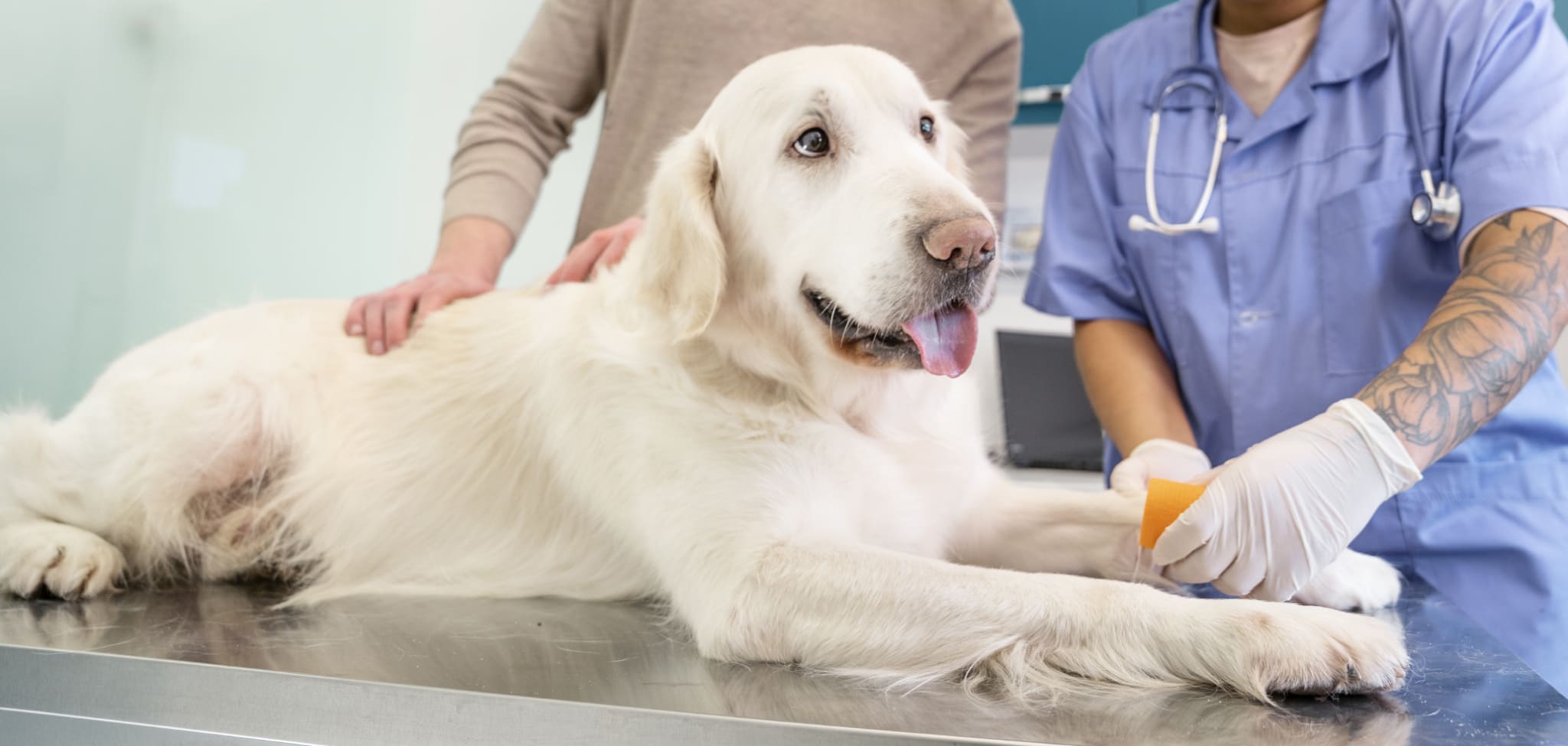Introduction
Taking care of your dog’s health and nutrition is essential to ensure they live a happy and fulfilling life. Just like humans, dogs require a well-balanced diet and proper care to maintain their overall well-being. In this comprehensive guide, we will explore various aspects of health and nutrition care for dogs, including the importance of a nutritious diet, feeding guidelines, common health issues, and tips for maintaining a healthy lifestyle for your furry friend.
The Importance of a Nutritious Diet
A nutritious diet is the foundation of good health for your dog. Providing them with the right balance of essential nutrients ensures optimal growth, development, and overall well-being. Dogs require a combination of proteins, carbohydrates, fats, vitamins, and minerals to thrive. Let’s dive into each of these components in detail.
Proteins
Proteins are the building blocks of life and are crucial for your dog’s growth and development. They play a vital role in maintaining healthy muscles, tissues, and organs. High-quality animal-based proteins, such as chicken, beef, and fish, are highly recommended for your dog’s diet. These proteins provide essential amino acids that cannot be produced by their bodies.
Carbohydrates
Carbohydrates are an important source of energy for dogs. They provide the necessary fuel for physical activity and help maintain healthy blood sugar levels. Good sources of carbohydrates for dogs include whole grains, such as brown rice and oats, as well as fruits and vegetables.
Fats
Fats are a concentrated source of energy and are essential for various bodily functions. They provide insulation, support cell growth, and help absorb fat-soluble vitamins. It’s important to include healthy fats, such as omega-3 fatty acids found in fish oil, in your dog’s diet. Avoid excessive fat intake, as it can lead to weight gain and other health issues.
Vitamins and Minerals
Vitamins and minerals are essential for your dog’s overall health and well-being. They play a crucial role in maintaining a strong immune system, promoting healthy bones and teeth, and supporting various bodily functions. A balanced diet that includes a variety of fruits, vegetables, and supplements can help ensure your dog receives an adequate amount of vitamins and minerals.
Feeding Guidelines
Feeding your dog the right amount of food at the right time is crucial for their overall health. It’s important to consider factors such as age, breed, size, activity level, and any specific dietary requirements when determining your dog’s feeding schedule. Here are some general feeding guidelines to keep in mind:
- Portion Control: It’s essential to measure your dog’s food portions to prevent overfeeding or underfeeding. Follow the recommended feeding guidelines provided by your veterinarian or dog food manufacturer.
- Meal Frequency: Puppies require more frequent meals compared to adult dogs. Generally, puppies should be fed three to four times a day until they are around six months old. Adult dogs can be fed once or twice a day, depending on their activity level and dietary needs.
- Water Availability: Ensure your dog always has access to fresh and clean water. Hydration is key to their overall health and helps with digestion and nutrient absorption.
- Avoid Table Scraps: While it may be tempting to share your food with your dog, it’s important to avoid feeding them table scraps. Human food may contain ingredients that are harmful to dogs, such as onions, garlic, chocolate, and caffeine.
Common Health Issues in Dogs
Despite our best efforts, dogs can still experience various health issues throughout their lives. Understanding common health problems can help you identify symptoms early and seek appropriate veterinary care. Here are some prevalent health issues in dogs:
Obesity
Obesity is a significant concern in dogs and can lead to various health problems, such as joint issues, diabetes, and heart disease. It’s important to monitor your dog’s weight and ensure they maintain a healthy body condition. Regular exercise and a balanced diet can help prevent obesity in dogs.
Dental Problems
Dental hygiene is often overlooked but is crucial for your dog’s overall health. Poor dental care can lead to gum disease, tooth decay, and bad breath. Brushing your dog’s teeth regularly, providing dental treats, and scheduling professional cleanings can help maintain their oral health.
Allergies
Dogs can develop allergies to certain foods, environmental factors, or substances. Common symptoms include itching, redness, hair loss, and gastrointestinal issues. Identifying and eliminating the allergen from your dog’s diet or environment can help alleviate their symptoms.
Joint Issues
Joint problems, such as arthritis, are common in older dogs. These conditions can cause pain, stiffness, and difficulty in mobility. Providing joint supplements, maintaining a healthy weight, and regular exercise can help manage joint issues and improve your dog’s quality of life.
Tips for Maintaining a Healthy Lifestyle for Your Dog
Maintaining a healthy lifestyle for your dog goes beyond just their diet. Here are some additional tips to promote their overall well-being:
- Regular Exercise: Engage in regular physical activities with your dog to keep them mentally and physically stimulated. Activities such as daily walks, playtime, and interactive toys can help prevent obesity and improve their overall fitness.
- Grooming: Regular grooming sessions help maintain your dog’s coat and skin health. Brushing their fur, cleaning their ears, and trimming their nails are essential grooming practices.
- Routine Veterinary Care: Schedule regular check-ups with your veterinarian to ensure your dog’s vaccinations are up to date and to identify any potential health issues early on.
- Positive Reinforcement: Use positive reinforcement techniques, such as treats and praise, to train and reward your dog. This encourages good behavior and strengthens the bond between you and your furry friend.
Conclusion
Taking care of your dog’s health and nutrition is a lifelong commitment. By providing them with a nutritious diet, following feeding guidelines, and addressing common health issues, you can ensure they lead a happy and healthy life. Remember to consult with your veterinarian for personalized advice and guidance based on your dog’s specific needs. With proper care and attention, your four-legged companion will thrive and bring joy to your life for years to come.
“A well-balanced diet and proper care are the keys to a healthy and happy dog.”
LEARN & GROW CORNER
Baseball for Beginners
Baseball for Beginners: A Comprehensive Guide to the Basics Baseball is one of the most popular sports in the United States, enjoyed by millions of people of all ages. It's a game that requires [...]
Collecting Paper Currency
Collecting Paper Currency Hobby: Tips and Tricks for Building a Unique Collection Are you interested in the world of paper currency collecting? If so, you're in for a treat. Collecting paper money is a [...]
Coin Collecting Hobby
Coin Collecting Hobby: A Guide to Starting Your Collection If you've ever found yourself fascinated by the intricate designs and historical significance of coins, you might want to consider starting a coin collecting hobby. [...]
The Stamp Collecting
The Stamp Collecting: A Comprehensive Guide Stamp collecting is a fascinating hobby that has been enjoyed by people all over the world for over a century. Whether you're a seasoned collector or a newcomer [...]
ABC Gardening Hobby
ABC Gardening Hobby: Tips and Tricks for Beginners If you're looking for a rewarding and enjoyable hobby, gardening might be the perfect fit for you. A B C Gardening is a beginner-friendly approach to [...]










